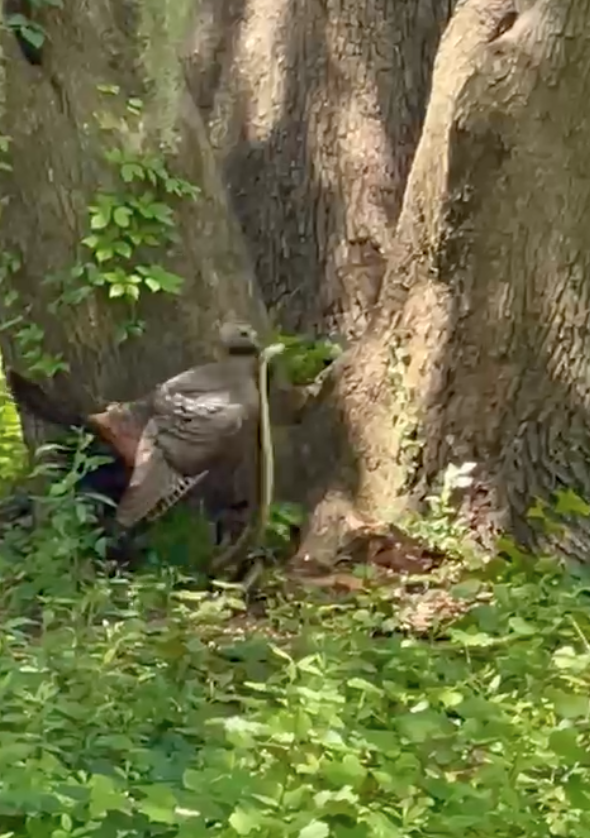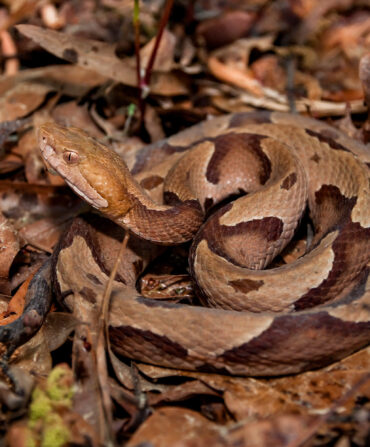While rounding a bend driving into her neighborhood on Wadmalaw Island, South Carolina, last weekend, Liz Magalis noticed a turkey hen in the brush along the side of the road. A second glance revealed that the hen was fighting something: a big snake. “I was worried I would scare her, but I pulled over,” Magalis says. “And she was so busy with the snake, she didn’t seem to care about me.” For the next few minutes, Magalis watched a fascinating scene unfold—and filmed it from about twenty feet away. “This hen was actively pursuing what you can tell is a very large snake, in my opinion, for her to have taken on.”
Given the time of year and the ferocity of the hen’s defense, Charles Ruth, the South Carolina Department of Natural Resources Big Game Program Coordinator, thinks she likely had a clutch of eggs or poults nearby. “That looks like a rat snake to me—and they are definitely egg eaters and would eat young turkeys if they could catch them,” he explains.
Researchers know mother turkeys have protective instincts; camera traps have caught them trying to run off racoons or possums that threaten their young. “But this video with this large snake is a pretty dramatic example,” Ruth says. Fending off predators is risky, and some hens will leave their nests or poults when faced with something they aren’t sure they can best. Not this one.

“She jumped in the tree with it, she chased it around the base, she pecked its head and tossed it around,” recalls Magalis. “She just really gave it a hard time, until finally the snake slithered into a hollow portion of the tree, and even then she continued her assault.”
A mother turkey’s behavior can give her offspring a fighting chance in a world where the statistics are stacked against them. Only three-quarters of female turkeys even attempt to nest each season, and only a quarter of those nests successfully hatch. “At that point, a hen has already spent twenty-six to twenty-eight days incubating the eggs on the ground, and that’s tough,” Ruth says. “Then, she’s going to spend another three to four weeks brooding the young birds on the ground, keeping them warm at night under her wings, and that’s tough too. They get picked off like crazy.” By the time she parts ways with a brood at summer’s end, only four turkeys, on average, will have made it out of roughly a dozen.
But if this video is anything to go by, we’d bet on this brood beating the odds.








